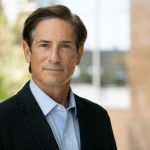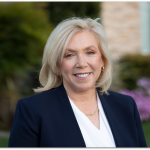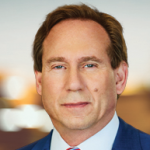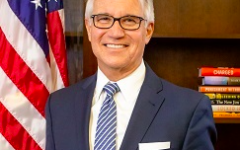
Attorney General Sign. (Photo: Kevin Sanders for California Globe)
What the Attorney General Candidates are Saying About ‘Quality of Life’ Offenses
Low-level drug use and dealing, prostitution, loitering, nuisance, burgeoning homelessness
By Thomas Buckley, May 16, 2022 10:05 am
Law enforcement concepts, like so many other things in life, tend to shift in the wind.
Until rather recently, most of California had embraced a “tough on crime” approach – including three strikes laws and – in many jurisdictions – a “broken windows” enforcement philosophy (embracing the idea that letting the “small” stuff slide only encourages the growth of the “big” stuff.)
And that approach seemed to be working well, with crime rates hovering around historically low rates for years.
But then, things changed to the point that what is now considered “big stuff” seems dubiously unclear while the “small stuff” has been ignored, in some locations aggressively and intentionally so.
This shift over the past few years has led to a host of problems – including rising crime rates and an uneasy general sense of lawlessness – that touch the everyday lives of many Californians.
So to end our series, we’ve asked the Attorney General candidates the following question:
What are commonly referred to as “quality of life” offenses – low-level drug use and dealing, prostitution, loitering, nuisance, etc. – have essentially been de-criminalized in the state. How has this exacerbated the burgeoning homelessness problem and would you as Attorney General favor a form of “broken windows” law enforcement policy to curb this issue?

Nathan Hochman:
The “spiral of lawlessness” in California started with “quality of life” offenses where criminals realized that they could commit them with impunity. That spiral, like the “broken windows” perspective, can only be stopped and sent in the other direction by having an Attorney General willing to enforce the law and work with state legislators to pass sensible laws that address the root of the problems.
Rising homelessness is an example both of this problem and the potential solution. Since over 70% of the homeless population suffers from serious mental health issues, substance abuse disorders, or both, just providing them with housing and allowing them to commit “quality of life” crimes to feed their addictions and will not solve the problem. Instead, while treating them humanely and providing them with shelter, we need to ensure the public’s right to public spaces and pass laws that allow courts under specific circumstances to order mandatory mental health and/or substance abuse treatment.
I also see the Los Angeles Homeless Outreach Services Team (HOST) as a model to follow statewide, where county social service providers, non-profits, and law enforcement work together to provide a place for the homeless to go, combined with enforcement when they refuse to take the opportunity presented to them.

Anne Marie Schubert:
Our homeless problem is more about mental health and addiction crises than housing. What we are allowing to happen in our state is inhumane. Women are being exploited, children are being killed by fetanyl and we are letting fellow human beings waste away in their own filth because the ACLU and politicians like Rob Bonta insist they have a right to do so.
It’s immoral.
I want to see the billions we’re pouring into this problem put into shelter first, housing earned policies that provide treatment. And then we must enforce our laws. I will go after the cartels and the street dealers who are poisoning this population.

Eric Early:
I have a plan for addressing homelessness which can be seen at my website: www.ericearlyforca.com
Daniel Kapelovitz:
First of all, most of these crimes have not been de-criminalized all over the state. Drug dealing has not only not been de-criminalized, it is usually charged as a felony. However, most so-called “quality of life” offenses should be de-criminalized. People with substance abuse or mental health issues should get treatment, not incarceration. Offenses related to homelessness should not be criminalized. As for the “broken windows” theory, it has pretty much been debunked and has resulted in racist stop-and-frisk policies.
Attorney General Rob Bonta:
On the Attorney General’s campaign website, here is what he lists as his “issues:”
Stopping Gun Violence
Fighting Hate & Protecting Our Civil Rights
Stopping Transnational Criminal Organizations & Helping Victims of Crime
Protecting Health Care & Reproductive Freedom
More Safety & Fairness in Our Justice System
Standing Up to Powerful Interests Who Cheat Consumers
Justice For Workers & Tackling the Underground Economy
Taking on Big Polluters
Standing Up for Immigrant Communities
It may just be me, but I don’t see “reducing crime” as one of his priorities.
But we knew that already.
And that ends of Attorney General candidates question and answer series. We hope you have found it informative and we appreciate your comments and readership.
You can read all seven of the Attorney General articles HERE.
- Reedley ‘Lab’ Prompts Legislation - April 26, 2024
- USC Cancels Graduation - April 26, 2024
- Where Does Gascon Go From Here? - April 25, 2024




One thought on “What the Attorney General Candidates are Saying About ‘Quality of Life’ Offenses”